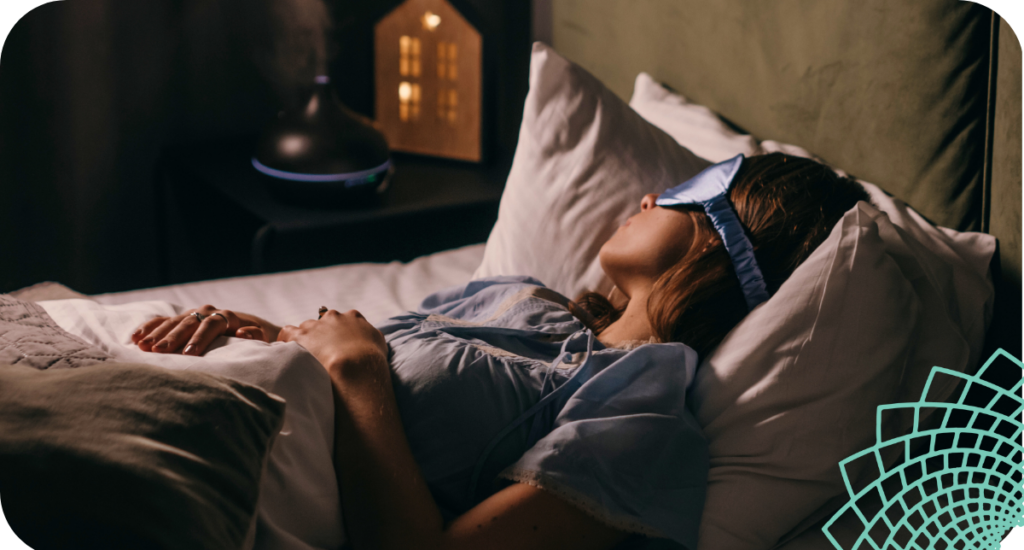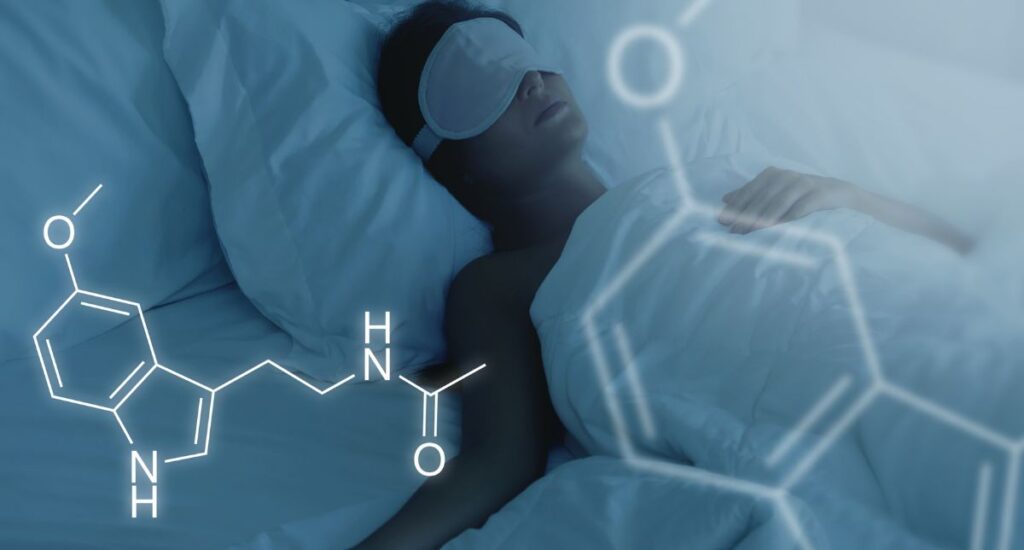“A good laugh and a long sleep are the best cures in the doctor’s book.” – Irish Proverb
Sleep is a fundamental aspect of our lives, a natural state every human needs to function optimally. It’s a period where the body undergoes vital processes crucial for physical and mental well-being. Improving sleep is essential in the bigger picture of health. In this blog, we’ll dive into the science of sleep, exploring its significance, how it contributes to our overall health, and provide ten tips on how to improve sleep.

Harnessing the Benefits of Deep Sleep for Better Health
One of the primary purposes of sleep is rejuvenation. During sleep, the body repairs tissues, consolidates memories, and releases crucial hormones necessary for growth and development. Deep sleep, also known as slow-wave sleep, plays a vital role in physical restoration. It’s during this phase that the body experiences a decrease in heart rate, blood pressure, and metabolic rate, allowing for deep relaxation and restoration of energy.
One fascinating aspect of deep sleep is its role in enhancing immune function. Research has shown that deep sleep is essential for the body’s immune system to function optimally. During this phase, the immune system releases proteins called cytokines, which help promote sleep and fight infection, inflammation, and stress. By prioritizing deep sleep, you not only support physical restoration but also bolster your body’s ability to defend against illness and maintain overall health. Thus, improving sleep and achieving quality deep sleep is crucial for not just feeling refreshed but also for strengthening your body’s defenses against various health challenges.
The Crucial Role of REM Sleep in Cognitive Function and Emotional Balance
Additionally, REM (Rapid Eye Movement) sleep is essential for cognitive function and emotional regulation. This stage is characterized by rapid eye movements, vivid dreams, and heightened brain activity. REM sleep is associated with memory consolidation, learning, and mood regulation. Without adequate REM sleep, cognitive abilities and emotional well-being may suffer.
Moreover, REM sleep plays a crucial role in processing emotions and facilitating creative thinking. During this stage, the brain sifts through the day’s experiences, consolidating memories and extracting meaningful insights. Research suggests that REM sleep fosters emotional resilience, helping individuals better cope with stress and regulate their mood. Furthermore, the activation of certain brain regions during REM sleep contributes to problem-solving abilities and innovation. Thus, prioritizing sufficient REM sleep is essential not only for cognitive function but also for nurturing creativity and emotional well-being.
Improve Sleep: Temperature’s Role in Supporting Natural Body Rhythms
Body temperature regulation is intricately linked to our sleep-wake cycle, with temperature fluctuations serving as a cue for the body to transition between different sleep stages. The drop in body temperature during sleep not only aids in falling asleep but also contributes to the quality of our rest. Research suggests that cooler temperatures promote deeper, more restorative sleep by facilitating the release of sleep-promoting hormones and encouraging relaxation of the body and mind. Creating a sleep environment that supports this natural temperature decline, such as keeping the bedroom cool and comfortable, can further enhance the quality of your sleep. By understanding and harnessing the relationship between body temperature and sleep, you can vastly improve your sleep health. This involves creating a sleep environment conducive to maximum rejuvenation, ensuring you wake up feeling refreshed and energized.
Improve Sleep: Harnessing Melatonin
Melatonin, often dubbed the “sleep hormone,” regulates our sleep-wake cycle, promoting relaxation and drowsiness. As evening approaches, melatonin levels rise, signaling to the body that it’s time to wind down. This hormone acts in opposition to cortisol, the stress hormone, which peaks in the morning to help us wake up. As cortisol levels decrease throughout the day, melatonin levels increase, preparing the body for restorative sleep. Improving sleep health includes aligning your bedtime with the rise in melatonin levels, ensuring you’re in bed early to capitalize on its effects and promote a deeper, more restful sleep.
However, several factors can hinder quality sleep. Stress, poor sleep hygiene, excessive screen time, toxin load, and eating too close to bedtime, leading to sleep deprivation and its associated health consequences.
Improve Sleep with These 10 Tips
To improve sleep health, consider implementing the following ten tips:
1. Establish a Consistent Sleep Schedule
Maintain a consistent sleep schedule by adhering to regular bed and wake times each day. This strategy fosters synchronization of your body’s internal clock, enhancing sleep quality and overall health.
2. Create a Relaxing Bedtime Routine
Establish a calming bedtime routine by incorporating relaxing activities can improve sleep. Begin by engaging in activities like reading, gentle stretching, or enjoying a warm bath. These actions help your body recognize that it’s time to unwind. By consistently practicing this routine, you can promote better sleep quality and overall well-being.
3. Design a Comfortable Sleep Environment
Ensure your bedroom is conducive to sleep by keeping it cool, dark, and quiet. Invest in a comfortable, non-toxic mattress and pillows to support restful sleep. Maximize relaxation by removing electronic devices and minimizing clutter to create a serene atmosphere conducive to restorative rest.
4. Limit Exposure to Screens Before Bed
Before heading to bed, it’s crucial to cut down on screen time. Turn off devices such as smartphones, tablets, and computers at least an hour before hitting the sack. This step helps in reducing exposure to blue light, which can disrupt your sleep-wake cycle.
5. Watch Your Caffeine Intake
Minimize your caffeine intake, particularly during the afternoon and evening hours. Caffeine can disrupt your sleep patterns, hindering your ability to both fall asleep and stay asleep. Therefore, it’s crucial to monitor and regulate your caffeine consumption to improve sleep hygiene.
6. Opt for Light Evening Meals and Stop Drinking Liquids Close to Bedtime
Stopping eating three hours before bed optimizes the body’s transition to a restful state. This timeframe allows for adequate digestion before sleep, preventing discomfort and disturbances during the night. By adhering to this guideline, you ensure that your body can focus on rejuvenation rather than digestion as you sleep.
7. Stay Active During the Day
Throughout the day, prioritize staying active by engaging in regular physical activities. However, be cautious and avoid vigorous exercises nearing bedtime. This can stimulate your body, potentially making it difficult to fall asleep.
8. Manage Stress to Improve Sleep
To enhance sleep quality, prioritize stress management techniques. Start by incorporating relaxation methods like deep breathing, meditation, or progressive muscle relaxation. These activities effectively reduce stress levels and facilitate relaxation, paving the way for better sleep.
9. Limit Naps
To maintain optimal sleep hygiene, limit daytime naps to around 20-30 minutes. Avoid napping late in the afternoon or evening as it can disrupt nighttime sleep patterns. By adhering to shorter naps and avoiding late-day snoozes, you can enhance your ability to fall asleep at night.
10. Consider Supplementation
Supplementation warrants consideration to improve sleep. For instance, magnesium, melatonin, and calming herbs could enhance sleep quality. When used properly, these supplements may offer benefits because they have been shown to regulate neurotransmitters, promote relaxation, and support healthy sleep patterns.
By making sleep a priority and putting these strategies into action, you can actively work on improving sleep health while optimizing your overall health and well-being. If you’re eager to dive deeper into optimizing your sleep and enhancing your health, we invite you to explore the health coaching certification programs offered by the Integrative Health Practitioner Institute. Our admissions team, composed of experienced graduates, is ready to answer your questions about becoming a certified health coach. Schedule a call today to take the first step towards achieving your wellness goals and helping others do the same.















